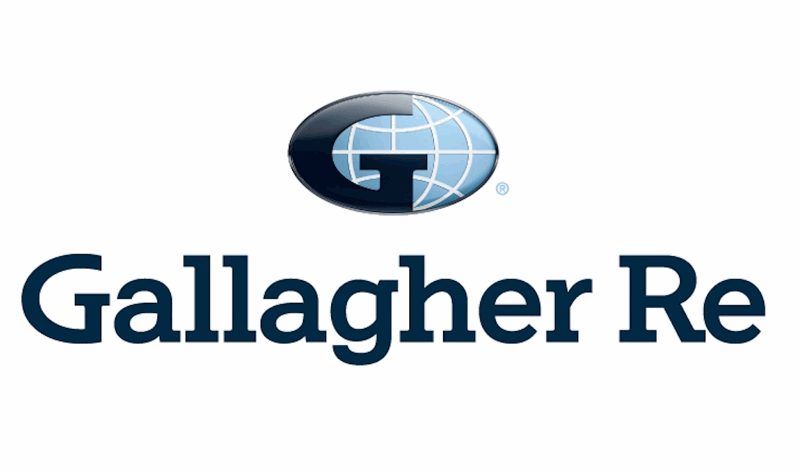Life insurance is often seen as a safety net in case of an unfortunate event, providing financial support to loved ones after the policyholder’s death. However, when viewed through the lens of financial planning, life insurance can be much more than just a protective measure—it can serve as a valuable financial asset that provides various benefits, including wealth-building and tax advantages. By understanding the full potential of life insurance, individuals can harness its power to not only protect their loved ones but also build their financial future.
What Makes Life Insurance a Financial Asset?
A financial asset is something that has value and can be used to generate income or wealth. While life insurance is typically associated with death benefits, permanent life insurance policies (like whole life and universal life) also build cash value over time. This cash value grows on a tax-deferred basis, making life insurance a unique and powerful tool for both protection and wealth-building. It can serve as a long-term asset that contributes to your overall financial strategy.
The Benefits of Viewing Life Insurance as an Asset
Seeing life insurance as a financial asset allows you to leverage it beyond its traditional role. Here are some of the key benefits of incorporating life insurance into your financial plan:
-
Tax Advantages: The cash value grows tax-deferred, and the death benefit is typically paid out tax-free.
-
Wealth Building: Permanent life insurance policies accumulate cash value that can be borrowed against or used for other financial needs.
-
Financial Security: Beyond just covering funeral costs, life insurance can provide long-term financial stability for your family and even assist with your estate planning.
The Role of Life Insurance in Financial Planning
Life Insurance as a Safety Net
The primary function of life insurance is to provide financial security for your beneficiaries in the event of your passing. It’s an essential part of a well-rounded financial plan. In the case of term life insurance, the coverage lasts for a specific period, making it a cost-effective choice for families or individuals who want to ensure their loved ones are taken care of in the event of their untimely death.
Building Wealth through Permanent Life Insurance
Unlike term life, permanent life insurance policies, such as whole life and universal life insurance, accumulate cash value over time. This cash value grows at a guaranteed rate (in the case of whole life) or with interest based on market performance (in the case of universal life), and it can be accessed by the policyholder while they’re still alive. Over time, this accumulation of cash value can serve as a source of funds for retirement planning, emergency needs, or even business ventures.
Types of Life Insurance and Their Financial Benefits
Term Life Insurance
Term life insurance is the most affordable option, offering coverage for a specified period, such as 10, 20, or 30 years. While it does not accumulate cash value, term life can still be valuable in your financial plan by providing a safety net for your family in case of your untimely death. It’s particularly useful for those looking for temporary coverage at an affordable rate.
Whole Life Insurance
Whole life insurance provides lifelong coverage and includes a cash value component that grows over time. The premiums are typically higher than term life, but they remain fixed throughout the life of the policy. The cash value grows at a guaranteed rate, and you can borrow against it or use it to pay premiums. Whole life insurance is often used as part of long-term wealth-building strategies.
Universal Life Insurance
Universal life insurance offers flexible premiums and coverage, and its cash value grows based on interest rates set by the insurer. This type of policy allows you to adjust the death benefit and premiums, giving you greater control over your financial planning. It combines protection with the opportunity for investment growth.
Life Insurance as an Investment Tool
Cash Value and Its Growth Potential
The cash value of permanent life insurance policies grows over time. In the early years of the policy, a significant portion of your premium goes toward the insurance costs, but over time, the cash value accumulates. You can borrow against this cash value or, in some cases, withdraw it to help fund your financial goals, such as paying for college tuition or buying a home.
Using Life Insurance for Estate Planning
Life insurance is also an important tool in estate planning. The death benefit paid to your beneficiaries is generally tax-free, making it an efficient way to transfer wealth. Life insurance can be used to cover estate taxes, ensuring that your heirs don’t have to sell assets like family homes or businesses to cover these expenses.
How Life Insurance Helps in Tax Planning
Tax-Deferred Growth of Cash Value
One of the most compelling reasons to consider permanent life insurance as part of your financial strategy is its tax-deferred growth. The cash value within your policy grows without being taxed until you access it. This can make life insurance a valuable tool for long-term wealth accumulation, especially if you’re seeking ways to defer taxes while still building assets.
Tax-Free Death Benefit
The death benefit from a life insurance policy is typically paid to your beneficiaries tax-free, providing them with much-needed financial support without worrying about taxes. This can be especially beneficial in estate planning, as it allows for the transfer of wealth without the burden of estate taxes.
Using Life Insurance for Loan Collateral
Borrowing Against the Cash Value of Your Policy
In addition to its death benefit, the cash value accumulated in a permanent life insurance policy can be used as collateral for loans. If you need to borrow money for a business, investment, or other financial purposes, you can often use the cash value of your policy as a source of collateral. Loans taken against your life insurance policy don’t require credit checks and typically have lower interest rates compared to traditional loans.
Benefits of Using Life Insurance as Collateral
Using life insurance as collateral has several benefits:
-
Quick access to funds: You can borrow against the cash value without going through a lengthy approval process.
-
Favorable loan terms: Life insurance loans usually come with lower interest rates and flexible repayment terms.
-
Non-taxable loan: The loan itself is not taxed, and if repaid properly, it won’t affect your beneficiaries’ death benefit.
Debunking Common Misconceptions About Life Insurance as an Asset
“Life Insurance is Just for Protection”
While life insurance is primarily a tool for protecting your loved ones, permanent life insurance policies also offer financial benefits that go beyond protection. With cash value accumulation, tax advantages, and the ability to borrow against the policy, life insurance can be an integral part of your wealth-building strategy.
“Life Insurance is Too Expensive as an Investment”
While it’s true that permanent life insurance policies can be more expensive than term life insurance, they can still be a cost-effective investment tool over the long term. Additionally, they provide peace of mind, tax advantages, and potential for cash value growth, which may outweigh the higher initial premiums.
Is Life Insurance Right for Your Financial Strategy?
Factors to Consider Before Choosing Life Insurance
Before integrating life insurance into your financial strategy, consider the following:
-
Your long-term financial goals: Do you need coverage for your family or are you looking for an investment vehicle?
-
Your budget: Can you afford the premiums for a permanent life insurance policy, or would a more affordable term policy suffice?
-
Your health: Health plays a major role in the cost of life insurance, especially if you’re considering a permanent policy.
How to Integrate Life Insurance into Your Financial Plan
Life insurance can be integrated into your broader financial strategy in several ways:
-
Use term life insurance for short-term protection.
-
Opt for whole life insurance for long-term wealth accumulation.
-
Consider universal life insurance if you want flexibility in premiums and death benefits.
Conclusion
Life insurance is more than just a safety net for your family in case of death. When used strategically, it can be a powerful financial asset that helps with wealth-building, tax planning, estate planning, and more. Whether you’re looking to protect your loved ones or grow your financial portfolio, life insurance is a tool that offers numerous benefits.
FAQs
What is the difference between term life and whole life insurance as a financial asset?
Term life insurance offers protection for a specific period but doesn’t build cash value, while whole life insurance accumulates cash value and offers lifelong coverage.
How can life insurance help me with estate planning?
Life insurance can provide a tax-free death benefit to your beneficiaries, helping them cover estate taxes and avoid selling assets to settle your estate.
Can I borrow against the cash value of my life insurance policy?
Yes, you can borrow against the cash value of permanent life insurance policies, using the money for business, investments, or other needs.
Is it worth using life insurance as an investment?
For some, life insurance can be a valuable investment tool, particularly whole life or universal life insurance, which accumulate cash value and offer tax benefits.
How does life insurance affect my taxes?
Life insurance policies offer tax-deferred growth of cash value, and the death benefit is typically tax-free for your beneficiaries.
Please don’t forget to leave a review.


